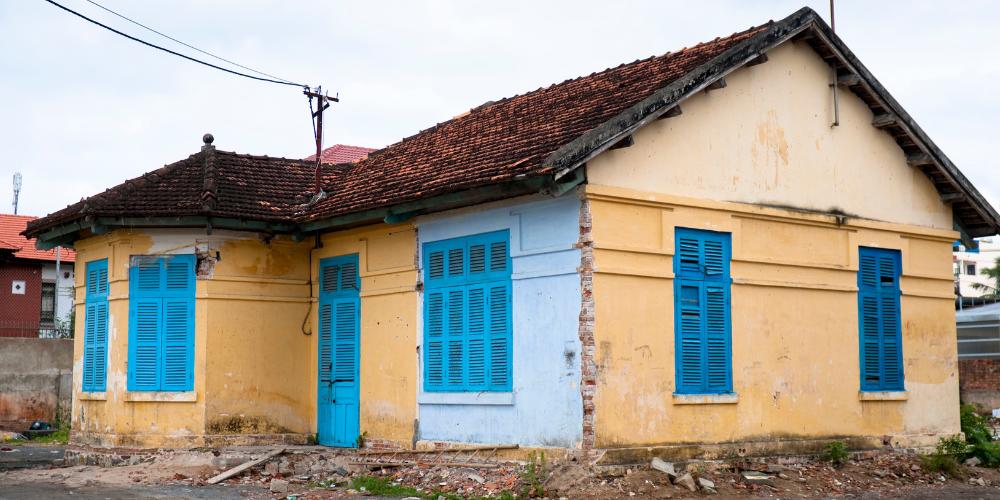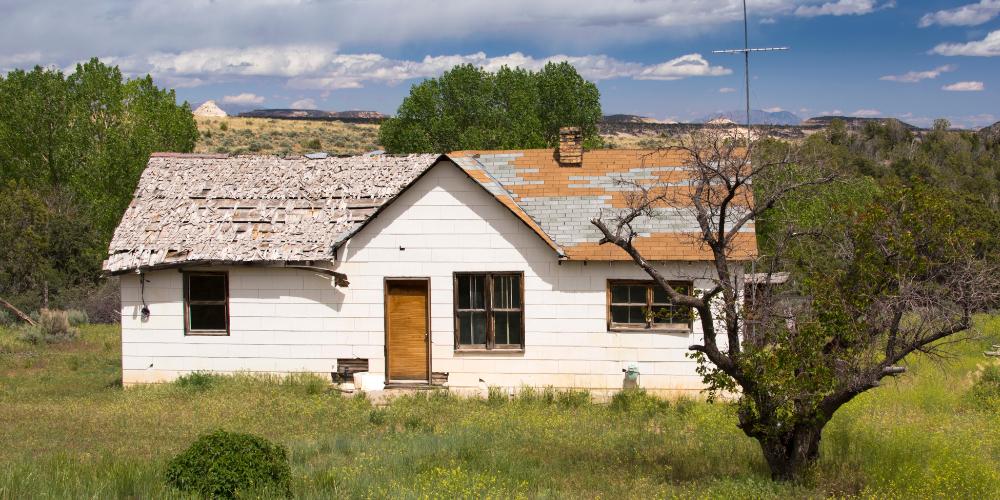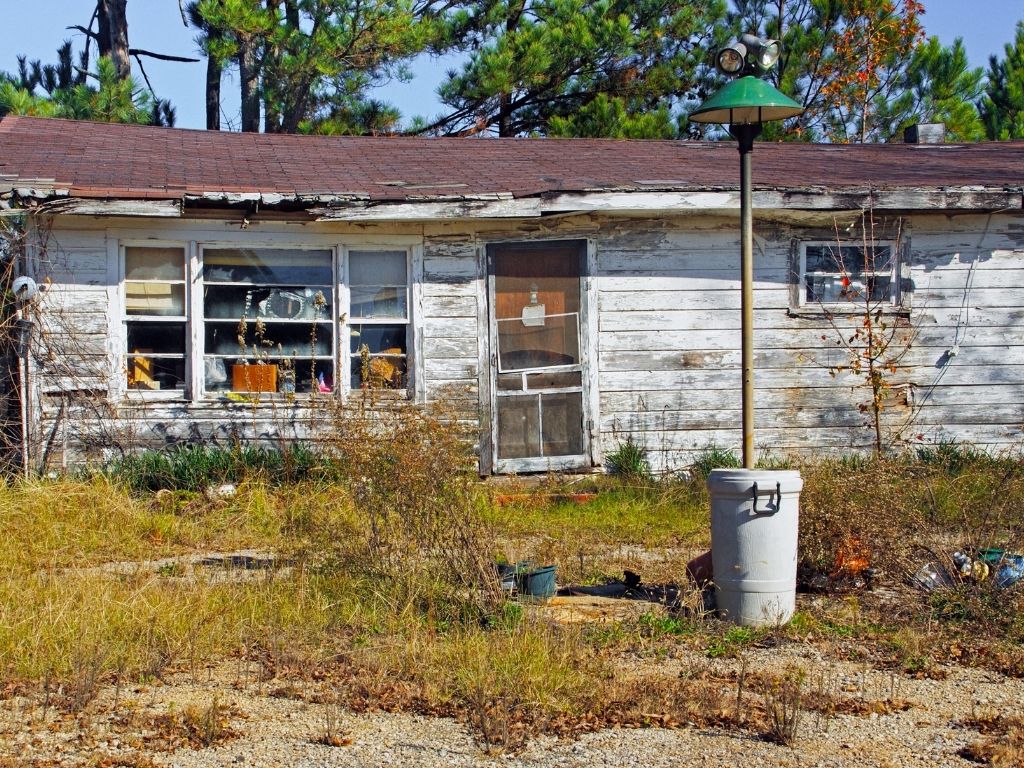If you’re looking to invest in properties, you probably want to keep your costs as low as possible. After all, saving on costs early on means more money in your pocket when it comes time to sell. Buying a run-down home is perfect for investors who will fix and flip. Why spend more money on a home you’re going to rip apart anyway?
Finding run down or distressed homes saves you money and gives you an open book of possibilities when renovating the home to meet the area’s buyer demand. The key is to know which ones are ripe for investment, and which ones will end up being unsellable money pits. This is what you can expect:
What Is A Run-Down Home?
Typically, run-down homes are pre-foreclosure or foreclosure homes. In most cases, the homeowners couldn’t keep up with their financials and they stopped paying their mortgage. The bank eventually started pre-foreclosure or foreclosure proceedings, making the home available to potential buyers at a discount. These properties can represent some of the best deals available in real estate, but this comes with one big caveat.
Run-down homes usually are in poor condition, especially if the owners made it all the way to the foreclosure process. If homeowners can’t keep up with their mortgage payment, they most likely didn’t pay for home maintenance and repairs either.
There isn’t a concrete definition of a run-down home, though, so you’ll run into a variety of issues when buying distressed properties. Assess each situation individually and remember to rely on a property appraiser for a professional opinion.
How To Find Run-Down Homes For Sale
How do you find the perfect run-down home for your investment needs? Try the steps listed below:
1. Look at tax records: Tax records are available to the public for free. You can check most counties ‘ tax records online today. If you find homes with unpaid taxes, chances are they are experiencing financial trouble and may be on the verge of foreclosure – a golden opportunity if everything comes together. Put the home on your radar and do other research to see if that’s the case.
2. Check MLS listings: You’d be surprised to see how many run-down homes are listed on the MLS. If you don’t know the wording to look for, though, you may run right past it or find yourself unpleasantly surprised if you weren’t in the market for a distressed property.
The most common words to look for in the listing include:
- Must sell fast
- Sold as-is
- Below market value
- Under appraised value
3. Look through bank-owned property listings: If a bank can’t sell a foreclosed home at the auction, it becomes bank-owned. This isn’t something the bank wants. They would rather get the home off their inventory fast because they aren’t in the business of selling homes.
If you come across bank-owned homes listings, you may be able to negotiate with the bank and score a great deal on a home. The less work the bank has to do to sell the home, the happier they are, so you could be doing them a favor.
4. Drive around: This may sound too easy, but it’s one of the best ways to find run-down homes. Usually, when homes are run down, they are also abandoned and are easy to spot even from a distance.
Look for the telltale signs of overgrown grass and landscaping, lack of repairs on the home’s exterior, and just an empty feeling to the home. Once you know the address, you can do some quick sleuthing to find out who owns it and/or is selling it.
This article further explains the process of ‘driving for dollars‘. It is a surprisingly common method for finding investment properties.
5. Check out home auctions: Get on a list of upcoming property auctions and find out which homes interest you. Most banks don’t let bidders walk through the home, but you can get other information about the home just by having the address.
At the very least, drive past the home and see what you can gather about it. Then look up any records, including the tax records to see past owners, and any other information posted online about the property. You may even find it listed in the MLS from a previous attempt at selling it.
6. Work with a local realtor: Partnering with a professional real estate agent in the area who specializes in run-down homes will get you a lot further a lot faster.
Real estate agents have inside information and access to MLS listings a lot faster than you could find on your own. Plus, with a real estate agent’s networking, you may find other professionals who point you in the right direction to buy the perfect investment property.
7. Look for homes for sale by owner: Oftentimes for sale by owner homes (FSBO) are run down or owners in need of a quick sale. They often don’t want the expense of using a real estate agent because the profits in the home (if any) are so small.
You can tell by looking at homes for sale by owner if they’re run down or not just by driving past them. An immaculate looking home may just be an owner who doesn’t want to deal with a real estate agent, but a run-down home will have the telltale signs of needing a fast (and possibly cash) sale.
Key Risks When Buying Run-Down Homes

Underestimating Repair Costs
Renovating a run-down home often costs more than anticipated. Hidden issues such as outdated wiring, plumbing problems, or structural damage can quickly escalate your expenses. A thorough inspection and a detailed cost estimate are crucial to avoid financial surprises.Renovations May Take Longer Than Expected
Renovations on older or neglected properties can take significantly longer than planned. Delays in obtaining permits, sourcing materials, or uncovering unexpected issues can extend the timeline, potentially impacting your living arrangements or investment goals.Uncertain Market Value
While run-down homes may seem like a bargain, their market value post-renovation depends on the location, market trends, and the quality of the upgrades. If the renovations don’t align with what buyers or renters expect in the area, you risk over-investing without a commensurate return.Potential Health Hazards
Older homes may harbor hazardous materials like lead paint, asbestos, or mold. These can pose health risks and require specialized (and often costly) remediation. Failing to address these issues can lead to legal liabilities or jeopardize occupants’ safety.Difficulty Financing Renovations
Traditional lenders may be hesitant to finance a run-down property due to its condition. While renovation loans are an option, they often come with higher interest rates and stricter requirements. A lack of accessible funding could leave you financially stretched mid-project.
By being aware of these risks and planning accordingly, buyers can turn a run-down property into a rewarding investment or a dream home.
Benefits of Buying Run-Down Homes

Lower Purchase Price
Run-down homes are typically priced below market value due to their condition, making them an affordable entry point for investors. By purchasing at a discount, you have the potential to create significant equity once the property is renovated and sold.High Potential for Value Appreciation
Renovating a run-down home allows you to strategically add value through upgrades and repairs. By focusing on improvements that appeal to buyers, such as modern kitchens, updated bathrooms, and enhanced curb appeal, you can dramatically increase the home’s resale value.Customization Opportunities
A neglected property is a blank canvas, allowing you to tailor the renovations to meet market demand or the preferences of your target buyers. This customization can make the home more attractive to buyers and help it stand out in a competitive real estate market.Tax Advantages
House flipping investors can benefit from tax deductions related to the renovation process. Expenses such as labor, materials, and loan interest may be deductible, reducing your overall taxable income and improving your profit margins.Less Competition
Many traditional buyers shy away from run-down homes due to the perceived risks and effort involved. This reduced competition can give you an advantage in negotiations, enabling you to secure favorable terms and build a stronger return on investment.
By understanding and leveraging these benefits, house flipping investors can turn run-down homes into profitable opportunities while revitalizing communities and providing quality housing options.
Common Maintenance Issues With Run-Down Homes
Structural Problems
- Issues: Cracks in foundations, sagging floors, or weakened load-bearing walls.
- Impact: These problems compromise the home’s safety and can be expensive to repair.
Roof Damage
- Issues: Missing shingles, leaks, or a deteriorated roof structure.
- Impact: Roof problems can lead to water damage, mold growth, and compromised insulation.
Plumbing Issues
- Issues: Leaking pipes, clogged drains, corroded plumbing, or outdated materials like lead or galvanized steel.
- Impact: Plumbing problems can cause water damage, low water pressure, or health risks.
Electrical System Failures
- Issues: Outdated wiring, insufficient outlets, or electrical panels that don’t meet modern safety standards.
- Impact: These can pose fire hazards or lead to frequent power outages.
HVAC System Problems
- Issues: Old or broken heating, ventilation, and air conditioning systems.
- Impact: Poor temperature regulation, high energy costs, or health issues from poor air quality.
Pest Infestations
- Issues: Termites, rodents, or other pests taking advantage of neglected spaces.
- Impact: Pests can cause structural damage, spread disease, or create additional repair needs.
Water Damage and Mold
- Issues: Leaky roofs, plumbing, or drainage systems often lead to water intrusion and mold growth.
- Impact: Mold poses health risks and can require costly remediation if widespread.
Deteriorated Windows and Doors
- Issues: Broken glass, warped frames, or inefficient seals.
- Impact: Poor insulation, increased energy bills, and reduced security.
Neglected Exterior Maintenance
- Issues: Peeling paint, damaged siding, or overgrown landscaping.
- Impact: Reduced curb appeal and potential for further structural damage from exposure to the elements.
Outdated or Unsafe Fixtures
- Issues: Broken or old fixtures, such as railings, stairs, or appliances.
- Impact: These can pose safety hazards and deter buyers if the home is being sold.
By addressing these issues strategically, homeowners or investors can restore the property’s functionality, safety, and value.
Take Your Time Looking For Run Down Homes
Don’t rush the process when looking for run-down homes. If you buy the home via an auction or as a fast sale from an owner, you may not have much time to look inside the home and make a decision.
Do as much research as you can on the home so you know what you’re getting into. If you’re going to fix and flip the home, you may not care what’s wrong with it, but what if there are major (aka expensive) renovations such as a cracked foundation or termite damage?
Take your time, do your due diligence, and make your decision carefully so you walk out of the transaction with the intended profits, and the potential to grow your investment portfolio.
Frequently Asked Questions (FAQ)
Partnering with a professional real estate agent in the area who specializes in run-down homes will get you a lot further a lot faster.
Real estate agents have inside information and access to MLS listings a lot faster than you could find on your own. Plus, with a real estate agent’s networking, you may find other professionals who point you in the right direction to buy the perfect investment property.
Moreover, real estate agents possess valuable knowledge about abandoned properties and the legal aspects of acquiring them. They can guide you through the intricacies of claiming such properties, ensuring you understand the processes and requirements involved.
Additionally, agents can provide you with a selection of homes that are on the brink of foreclosure. This exclusive access allows you to explore options that might not yet be public, giving you an advantageous position in the competitive market of investment properties.
By leveraging the expertise and connections of a local realtor, you can efficiently navigate the real estate landscape, uncovering hidden gems and securing profitable deals.
When taking on an abandoned property, it’s important to account for several additional costs beyond the purchase price. Here’s a rundown of what to include in your budget:
Appraisal Fee: An essential step to determine the property’s true market value.
Inspection Fees: Invest in both pest and lead inspections to uncover potential hidden issues.
Title Insurance: Protect yourself against future claims with coverage to secure your ownership rights.
Closing Costs: This encompasses a variety of expenses like document filing and processing.
Legal Fees: Budget for any attorney services needed to navigate the legal complexities of acquiring the property.
When considering the purchase of an abandoned home, utilities can be a significant concern for several reasons.
First, utilities like water, electricity, and gas are often disconnected in such properties. Without active services, it’s nearly impossible to assess the condition of essential systems.
Electrical Wiring: Inactive electrical systems may conceal hazardous wiring issues that only become apparent once power is restored. These problems could lead to potential fire risks and expensive repairs.
Plumbing: Similarly, with the water shut off, it’s difficult to detect leaks or pipe damage. Undiscovered issues may result in costly water damage once the system is activated.
Gas Systems: A dormant gas line might mask leaks that could pose serious safety hazards. Detecting and rectifying these issues requires professional inspection and can involve significant expense.
Professional inspections are critical, but even experts face challenges without live utilities. Simplifying the investigation process means reactivating services temporarily, which may not always be feasible before purchase.



